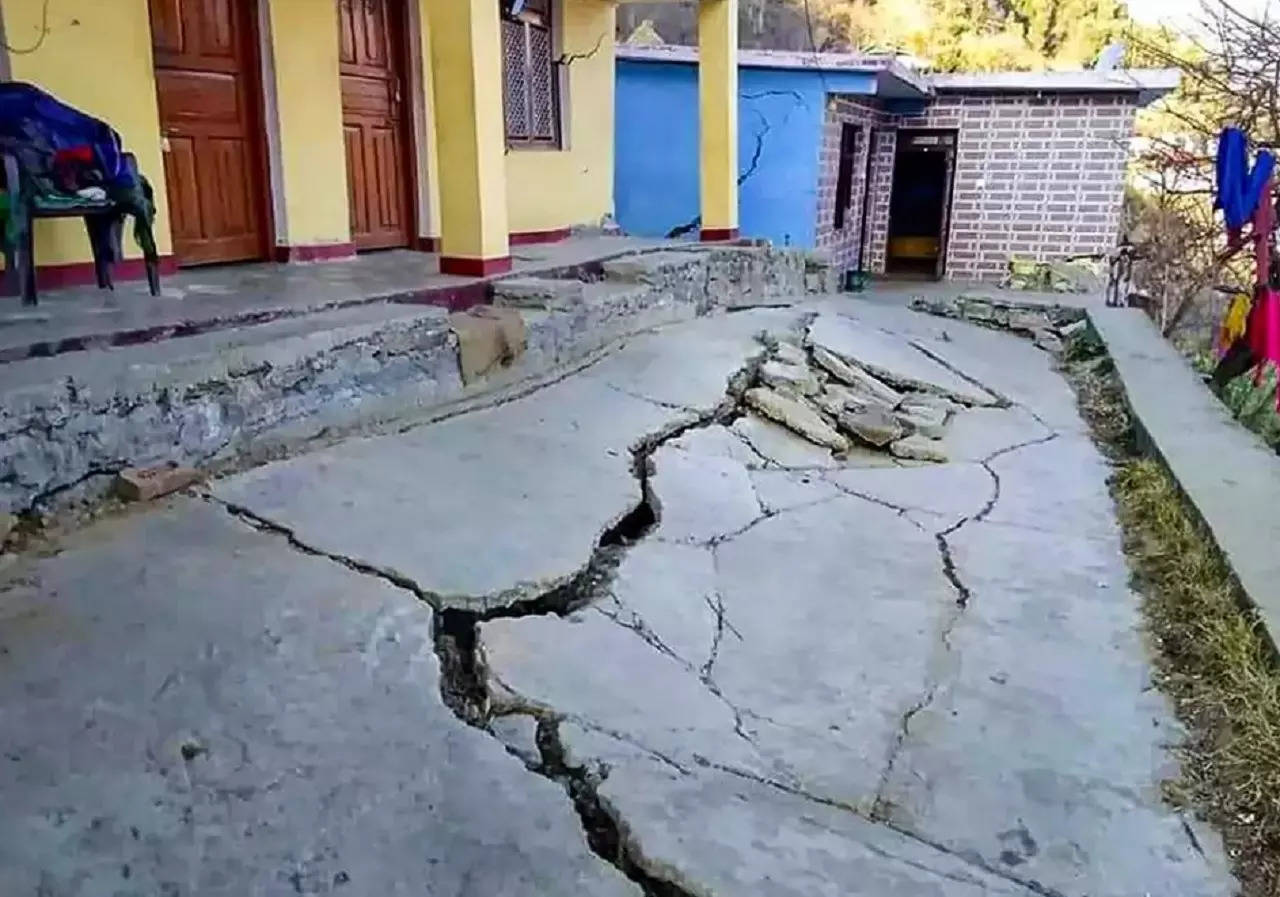
The exact reason behind the Joshimath crisis land subsidence is unknown at the moment. Read to know experts’ opinions on the possible reason behind the disaster.
What happened in the Joshimath crisis?
On Sunday, a week after cracks surfaced in several roads and houses in Joshimath, Uttarakhand, authorities declared the area a landslide and subsidence-hit zone. As of then, a total of 68 families were successfully evacuated to temporary relief centers. However, 90 more families will be evacuated in the coming days. The official announcement came following a high-level meeting among offices of the state and central governments. Additionally, top officers from the National Institute of Hydrology (NIH), the Geological Survey of India (GSI), and the National Disaster Management Authority (NDMA) were a part of the meeting.
As per experts from the National Oceanic and Atmospheric Administration (NOAA), the land subsidence was due to the “sinking of the ground because of underground material movement”. Such a disaster can occur due to several reasons both natural and man-made. Mining activities and removal of oil, water, or other natural resources, soil erosion, and earthquakes are major causes of land subsidence.
More on land subsidence and its causes:

As per official websites, land subsidence “happen over very large areas like whole states or provinces, or very small areas like the corner of your yard”. Experts are currently unsure of the exact reason. However, they believe it might be due to unplanned construction, obstruction of natural water flow due to hydel power plants, or even overpopulation in the region. Additionally, the Joshimath region is a seismic zone. Hence, it is more prone to earthquakes.
According to an Indian Express report, the possibility of such issues was first mentioned in the MC Mishra committee report. The report cautions against any “unplanned development in this area, and identified the natural vulnerabilities”. Experts reveal the city of Joshimath is built on an ancient landslide material. This means, it rests on stone and sand and not rock. Hence, has a low load-bearing capacity. Some reports claim locals blaming NTPC’s Tapovan Vishnugad Hydro Power Project. However, the authority denied all allegations. “The tunnel built by NTPC does not pass under Joshimath town. This tunnel is dug by a tunnel boring machine (TBM). And no blasting is being carried out presently,” stated the NTPC.






